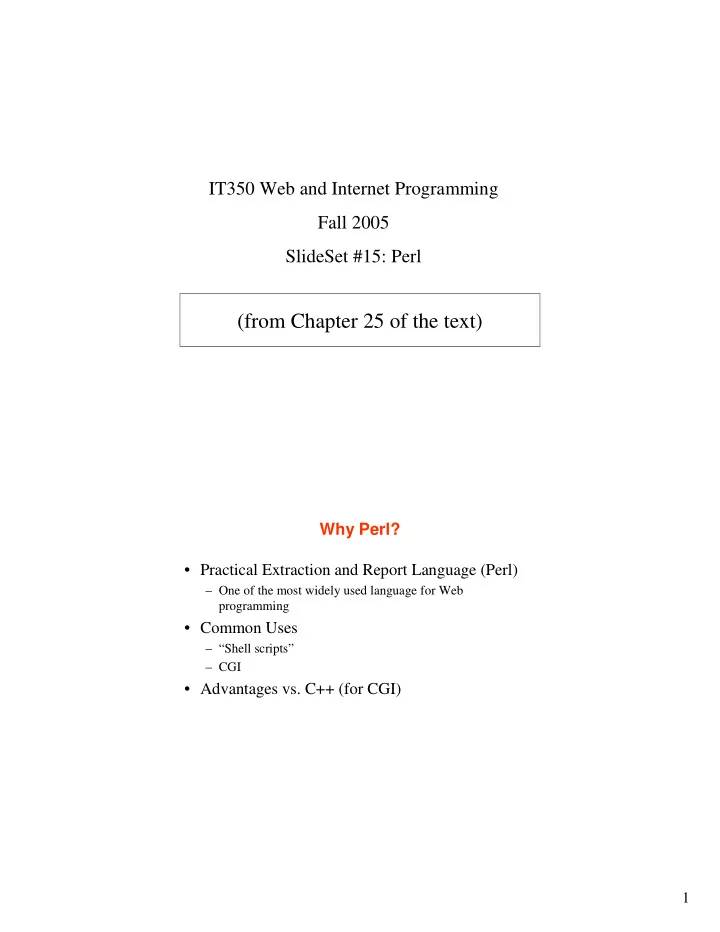

IT350 Web and Internet Programming Fall 2005 SlideSet #15: Perl (from Chapter 25 of the text) Why Perl? • Practical Extraction and Report Language (Perl) – One of the most widely used language for Web programming • Common Uses – “Shell scripts” – CGI • Advantages vs. C++ (for CGI) 1
Perl Basics use CGI qw( :standard ); print( header() ); $x = 2 + 3; $y = $x * 4; if ($x == 5.0) { print ("x is five"); } for ($i = 0; $i < 3; $i++) { $squared = $i * $i; print ("<br> \$i = $i, squared is $squared"); } $pet1 = "dog"; $pet2 = "ll" . "ama"; # Single quotes vs. double quotes print ("<br/>I have a $pet1 and a $pet2."); print ('<br/>I have a $pet1 and a $pet2.'); $comp1 = ($pet1 eq "dog"); print ("<br/> comp1: $comp1"); Perl and CGI use CGI qw( :standard ); print( header() ); print( start_html() ); $userName = param("name"); $userAge = param("age"); if ($userName eq "") { print "Go back and enter a name"; } else { print ( h1("Welcome", $userName) ); if ($age < 8) { print ("Sorry, too young to play."); } else { print ( h2( {"style" => "color: red"}, "Let's play!") ); } } print ( end_html() ); 2
File I/O use CGI qw( :standard ); print( header() ); print( start_html() ); $redCount = 0; open ( INFILE, "input.txt" ); while ($aVal = <INFILE>) { chomp ($aVal); if ($aVal =~ /red/i ) { $redCount++; } } close ( INFILE ); $result = "Found $redCount matches for 'red'."; print h2($result); print p("Writing this result to file."); open ( OUTFILE, ">count.txt" ); print OUTFILE $result . "\n"; close ( OUTFILE ); print ( end_html() ); What does this do? use CGI qw( :standard ); print( header() ); print( start_html() ); $index = 0; $sum = 0; open ( MYFILE, "numbers.txt" ); while ($aNum = <MYFILE>) { if ($aNum > 0) { $myArray[$index] = $aNum; $sum += $aNum; $index++; } } close ( MYFILE ); $myArray[$index] = $sum; $index++; $size = @myArray; open ( MYFILE, ">numbers.txt"); for ($i = 0; $i < $size; $i++) { print br() . $myArray[$i]; print MYFILE $myArray[$i] . "\n"; } close (MYFILE); print ( end_html() ); 3
Recommend
More recommend